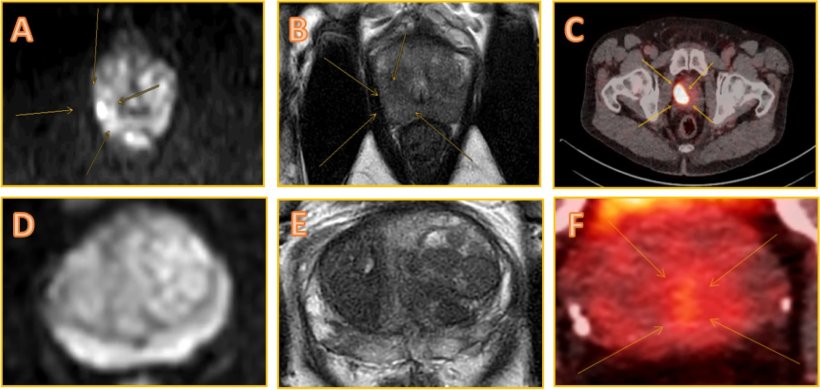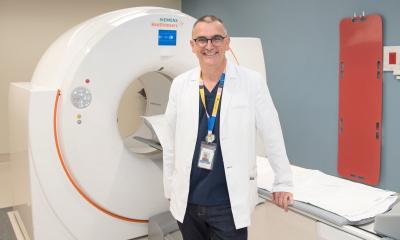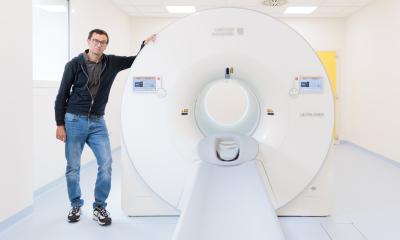
Image source: Krausewitz et al., Trials 2023 (CC BY 4.0)
News • PSMA-PET/CT
Advanced imaging may help in clinical treatment of prostate cancer
An advanced imaging method is showing promise as a way to improve the diagnosis of prostate cancer by giving clinicians a clearer view of suspected tumours during biopsy.
A trial conducted at the University Hospital Bonn, in Germany, has been testing the benefit of a scanning method known as PSMA-PET/CT to help target where to take biopsy samples. Interim results reveal that when used alongside standard imaging techniques, the additional scans might help clinicians make improved decisions about subsequent courses of treatment.
Compared to the standard scans alone, when PSMA-PET/CT was used clinicians changed how they might treat a patient with clinically significant prostate cancer in 19% of cases. The technique also helped to detect significantly more clinically significant prostate cancers.
The findings are presented today at the European Association of Urology Annual Congress in Milan.
PSMA-PET/CT is not yet available everywhere as it is expensive, so it is important we understand how it can be effectively used
Philipp Krausewitz
“The normal standard of care, which is an MRI scan and then a biopsy, is already good at detecting of prostate cancer, but we wanted to see if PSMA-PET/CT could offer additional information to help with treatment plans,” said Dr Philipp Krausewitz, a urologist at University Hospital Bonn who led the study. “It appears to be having an impact in high-risk patients, but we also saw false positives in 6% of patients that meant we needed further investigations. The question we are considering is whether the additional diagnostics are worthwhile.”
The study, known as the DEPROMP trial, has recruited around 200 men to take part since March 2021. The researchers are hoping to have 230 patients enrolled by the end of the trial. The preliminary results used data from 219 men who all underwent MRI, PSMA-PET/CT and biopsy. Their scans were then randomly looked at by two separate teams of urologists – one was given the results from the MRI, PSMA-PET/CT and biopsy, while the other group were given the results without the PSMA-PET/CT data. The researchers then compared how the two teams would choose to proceed with treatment based on the information they had. For example, the clinicians might choose to do surgery to remove the cancer or give the patient chemotherapy.
But it is not yet clear how these decisions might ultimately affect patient outcomes as it can take years and even decades for cancer to return if treated correctly. “We are seeing a change in cancer detection and management plans in these early results, but we have to wait to see if the final results reflect this,” said Dr Krausewitz. “PSMA-PET/CT is not yet available everywhere as it is expensive, so it is important we understand how it can be effectively used.”
With healthcare systems already under financial strain, the technique will need to offer a substantial improvement in diagnostic capability to be cost effective, added Jochen Walz, associate professor of Urology at the Institut Paoli-Calmettes Cancer Centre in Marseille, France, who commented on the research on behalf of the EAU. He said: "In the meantime, PSMA-PET/CT could be considered a solution for selected challenging diagnostic cases or those where MRI cannot be done."
Source: European Association of Urology
10.03.2023





